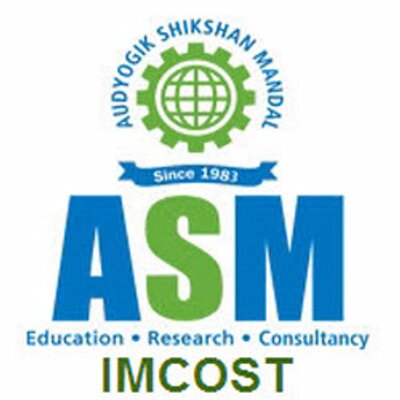Who is a Pharmacist?
A pharmacist is a healthcare professional who is involved in all aspects of medicine delivery to patients. They prepare and package medication that a doctor has prescribed and also sell them. They have expertise in the composition of medicines, including their chemical, biological, and physical properties, their manufacture, and their use.
A pharmacist will have a degree and knowledge in Pharmacy, which helps them in the understanding of the biochemical mechanisms of drugs, drug uses, therapeutic roles, side effects, potential drug interactions, and monitoring parameters.
What Does a Pharmacist Do?
The pharmacist advises patients and other health professionals on how to use or take medication, the correct dose of a drug, and potential side effects. Many other pharmacy graduates are employed by pharmaceutical companies and food and drink companies to work in areas such as research and development and quality assurance.
Pharmacist duties and responsibilities include:
- Maintaining the quality of medicines supplied to patients.
- Making sure that the supply of drugs is within the law.
- Giving the right advice for medicine prescribed to patients is suitable.
- Consulting patients about intake of medicine, what reactions may occur, and answering patients’ questions.
- Supervising the medicines supply chain and ensure pharmacy premises and systems are fit for the purpose.
How to Become Pharmacist – Step by Step
Want to start your career as a pharmacist? In this article, we have mentioned the details about this career. As a pharmacist, you have to prepare, research, and distribute medical drugs with the help of science and techniques.
Here are the steps to become a pharmacist in India:
Step 1 – Take the Science Stream in your 10+2
For taking admission to pharmaceutical professional courses, you need to pass 10+2 examinations with anyone combination of subjects- Physics Chemistry Biology (PCB), Physics Chemistry Mathematics (PCM), or Physics Chemistry Biology Mathematics (PCBM).
Step 2- Pursue Undergraduate Education in Pharmacy
After completion of 10+2, there is a range of courses in which you can take admission after clearing intermediate. All of these courses differ in terms of their duration, curriculum, opportunities, and degree.
| Course Name | Duration |
| Diploma in Pharmacy
|
3 Years |
| Bachelors Degree in Pharmacy (B.Pharm)
|
4 Years |
| Doctor of Pharmacy (Pharm.D)
|
6 Years |
1. Diploma in Pharmacy
Do you wish to open up your drug store and practice pharmacy in India? For this, you should at least have a diploma in pharmacy, which is a two-year duration course with a minimum requirement of a 10+2 science stream. You can even get a lateral entry to 2nd year in Bachelors of Pharmacy based on merit while doing your diploma.
2. Bachelors Degree in Pharmacy (B.Pharm)
It is an undergraduate degree course in the field of Pharmacy education. Those who are interested in the medical field (except to become a doctor) can choose this course after completing their 10+12. The course duration is 04 years. In this course, the students study drugs and medicines, Pharmaceutical Engineering, Medicinal Chemistry, etc.
3. Doctor of Pharmacy (Pharm.D)
Doctor of Pharmacy is a professional pre-Ph.D. postgraduate doctorate of six years introduced in the year 2008 by the Government of India and Pharmacy Council. The graduates in Pharm.D are entitled to prefix their name with Dr. as they already have spent a significant amount of time training in areas related to direct patient care and research.
Step 3- Pursue Postgraduate Education in Pharmacy
To pursue postgraduate education in Pharmacy the curriculum, research opportunities, and specializations change with each course. Here the complete list of courses and specializations.
| Course Name | Duration |
| Masters Degree in Pharmacy (M.Pharm) | 2 Years |
| PGDM/MBA in Pharmacy | 1 Year |
1. Masters Degree in Pharmacy (M.Pharm)
Master of Pharmacy is a postgraduate degree in the field of pharmaceutical science and its related subjects, having many specializations. The M Pharm course duration is 02 years, spread over 04 semesters, whose syllabus includes subjects such as Drug Delivery System, Pharmacokinetics, Pharmacognosy, Regulatory Affairs, etc.
2. PGDM/MBA in Pharmacy
PG Diploma in Pharmaceutical Management is a 1- year post-graduate course. The eligibility for this program is a Bachelors’s degree in Pharmacy or any related domain with minimum aggregate marks as required by the institute. This program comprises advanced concepts and processes involved in healthcare, particularly a powerful and safe utilization of pharmaceutical medications.
Related Blog: A Guide to PGDM in Pharmaceutical Management: Eligibility, Admissions, Fees, Syllabus, Benefits & More
What is the Average Salary of a Pharmacist in India?
 The average Pharmacist salary in India is ₹ 256,524 per year. Entry-level positions start at ₹ 192,000 per year while most experienced workers make up to ₹ 1,800,000 per year, based upon their experience, skills, gender, or location.
The average Pharmacist salary in India is ₹ 256,524 per year. Entry-level positions start at ₹ 192,000 per year while most experienced workers make up to ₹ 1,800,000 per year, based upon their experience, skills, gender, or location.
Related Blog: Pharmacist Average Salary in India 2021 The Complete Guide
What Do You Study to Become a Pharmacist?
To become a pharmacist, you have to learn a mix of theory, practical classes, exams, and compulsory industrial/hospital training depending on the course selected. Science Stream is mandatory to pursue further studies in pharmacy after 10+2.
Academic Requirements:
- To be eligible for Diploma, you need to pass 10+2 (Science Stream).
- To be eligible for B.Pharm, get a minimum of 50 percent marks in the qualifying exam.
- To pursue M.Pharm, a recommended minimum score of 50 percent in B.Pharm from any recognized university or equivalent is required.
- The student must also have completed the D.Pharm course from a PCI-approved institution.
What Are the Benefits of Being a Pharmacist?
Pharmacy career offers many benefits and opportunities and is an excellent earning source, and is consistently ranked as one of the most highly trusted professions due to the care and service pharmacists provide.
Here are a few benefits of being a pharmacist:
- Trusted profession: Due to patient care and health-related services, it is the most trusted profession. Pharmacy can be a great road for you to explore.
- Excellent earning potential and job security: Pharmacists are consistently in demand in times of economic downturns and the COVID-19 pandemic. Thus becomes one of the most financially rewarding careers with a high level of job security.
- Incredible Growth: There is a wide variety of work settings available on this platform like- community pharmacies, hospitals, long-term care facilities, the pharmaceutical industry, mail order pharmacy centers, managed care organizations, and government agencies.
- Patient Care:Pharmacists deliver well-rounded patient care. They not only dispense medicine but even offer advice to doctors about medicines whenever needed.
- Self-Employment:Specialty pharmacies are a fast-growing sector in India. You can start your own medical/chemist store or else independent pharmacies at your locality.
How to Choose the Right Type of College?
Choosing the right undergrad program after the 12th is a very intimate and sometimes intimidating task. To help you, in this article, we have mentioned some of the advice for finding the best pharmacy school, with hopes of making this process a little bit easier for you. Read below for more-
- Do Your Research: Do your due diligence and research in selecting the pharmacy school that is right for you, as the return on your investment must be worth it.
- Run for your Dream School:After completing your research, ideally, go for the campus of your number one choice to ensure that the pharmacy school is the right fit and feel for you.
- Strong Alumni Network: Your College needs to invest in opportunities to connect current students with alumni, as these individuals can be crucial to expanding job and research opportunities following pharmacy school.
Pharmacist Related: FAQs
Q1: Is a pharmacist a doctor?
Though pharmacists and doctors both are healthcare professionals, yet their responsibilities vary. Pharmacists need to make sure the dispensed medications are suitable and will be safe for use. To be a pharmacist, you need to have skills like accuracy, integrity, science & mathematics, communication, and management skills.
Q2: Can a nurse become a pharmacist?
A nurse who wishes to become a pharmacist needs an additional education known as Pharm. D. Although nurse’s training provides all prerequisites for pharmacy school, a nurse usually requires at least four more years of the degree to become a pharmacist.
Q3: What degree is required to become a pharmacist?
A bachelor’sdegreeor B. Pharm isrequiredfor those who wish to work in thepharmaceuticalindustry. However, a postgraduate diploma as well is accepted.
Q4: How hard is it to become a pharmacist?
It is hard to become a pharmacist if a person is not interested in the work. The Pharm.D program is rigorous and requires full-time commitment to succeed.
Q5: Can a pharmacist give medical advice?
They are experts whocan helpyou with minor health concerns. As qualified healthcare professionals, theycan offerclinicaladviceand over-the-counter medicines for a range of minor illnesses, such as coughs, colds, sore throats, aches, and pain.
Summary
Pharmacy course primarily aims to prepare eligible candidates for managerial positions in the industry-leading to skill development through planning, the operation of management techniques, consultancy, and management-related problem-solving.
Our PGDM in Pharmaceutical Program extends knowledge of chemical science and the effective use of pharmaceutical drugs. The course enables you to get advanced knowledge of business management along with the fundamentals of pharmaceuticals. Becoming a part of ASMs IMCOST, you are enrolling for a more rewarding and successful future. Right from state of art infrastructure to expert faculty, we have it all. What are you waiting for? Apply TODAY!


